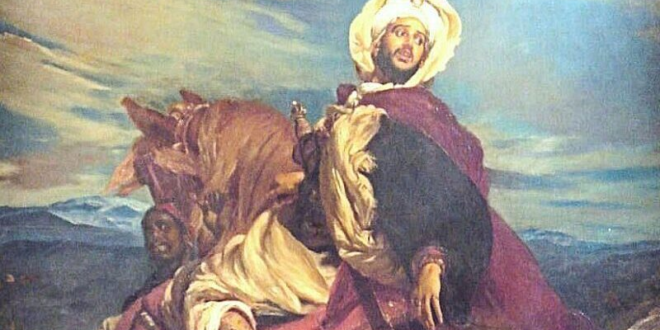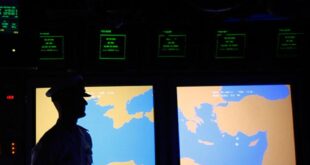As Europe continues to grapple with questions of identity, integration, and multiculturalism, a familiar yet complex debate has resurfaced: Do Muslims fit in Europe? This question—recently explored in a provocative exchange between renowned anthropologist Professor Akbar S. Ahmed and physicist and public intellectual Dr. Pervez Hoodbhoy—demands more than simplistic answers. It invites a deeper reckoning with history, politics, and the narratives that shape our societies.
It’s a question that reveals more about Europe’s historical amnesia than about Islam itself. For a continent that once depended on Islamic civilisation to escape the Dark Ages, this selective forgetting is as ironic as it is dangerous.
Moreover, debates over Muslim integration in Europe often reduce a complex historical relationship into a clash of identities. Yet this framing ignores centuries of intellectual cooperation between Islamic and European civilizations, as well as the internal diversity of Muslim communities today.
It’s a paradox of modern Europe: the same Islamic civilisation that helped lift Europe out of the Dark Ages is now portrayed as a cultural threat. As debates rage over immigration and integration, it’s worth remembering that Muslim thinkers, scientists, and philosophers once laid the intellectual foundations for much of Europe’s own progress. That legacy matters today more than ever.
The Glorious Past: A Shared Intellectual Inheritance
During what is often referred to as Europe’s “Dark Ages,” roughly spanning the 5th to 10th centuries, intellectual light burned brightly elsewhere—in the heart of the Islamic world. From the 8th to 13th centuries, the Islamic Golden Age flourished across Baghdad, Córdoba, Cairo, and beyond. Muslim scholars not only preserved Greek, Roman, Persian, and Indian knowledge, they expanded upon it.
Figures such as Al-Khwarizmi, who gave the world algebra; Ibn Sina (Avicenna), whose medical texts became standard references in Europe for centuries; and Averroes (Ibn Rushd), whose commentaries on Aristotle influenced European philosophy, exemplify a civilisation driven by inquiry and scholarship.
These contributions were not confined to Muslims alone. Christian, Jewish, and Muslim thinkers worked side-by-side in centers of learning like the House of Wisdom in Baghdad or the libraries of Al-Andalus. Through translation movements and intellectual exchange, this knowledge flowed into Europe via Spain and Sicily, laying crucial groundwork for the European Renaissance.
The Modern Challenge: From Knowledge Exchange to Cultural Anxiety
Fast-forward to the 21st century, and the dynamic has shifted. Instead of Europe seeking knowledge from the Islamic world, the relationship is often framed through the lens of immigration, integration, and identity politics.
Immigration from Muslim-majority countries—whether due to colonial legacies, labor needs, or displacement by conflict—has led to increasing diversity in European cities. Yet, it has also prompted fears about the supposed incompatibility of Islam with liberal democratic values.
Concerns about integration, secularism, and extremism dominate headlines. Right-wing populist parties capitalise on cultural anxieties, portraying Muslim communities as inherently resistant to modern European norms. The tragedy is that such portrayals ignore the diversity within Muslim populations, the vast majority of whom are peaceful, law-abiding, and deeply engaged in the social fabric of their countries.
As Professor Akbar S. Ahmed often emphasises, the Muslim experience in the West is far more nuanced than media narratives suggest. His work, including his documentary – Do Muslims Fit in Europe, calls for empathy, dialogue, and a recognition of shared humanity. On the other hand, Dr. Pervez Hoodbhoy warns against the perils of anti-intellectualism and religious orthodoxy within segments of the Muslim world. Both are right in different ways—and both are necessary voices in this conversation.
Beyond the Binary: Toward a Shared Future
Framing Islam as a threat to Europe risks reviving the discredited “clash of civilisations” thesis. It oversimplifies a rich and varied religious tradition and reduces Muslims to a monolith. It also ignores the millions of European Muslims who identify deeply with both their faith and their national identity.
The real challenge is not Islam vs. Europe—it is how modern societies manage pluralism, change, and coexistence. It’s about how Europe lives up to its professed values of liberty, equality, and fraternity when faced with difference. And it’s about how Muslim communities adapt, evolve, and participate fully in civic life, without having to abandon their heritage.
History teaches us that civilisations flourish when they learn from one another, not when they isolate or demonise. If the Islamic world once helped Europe climb out of the Dark Ages through a spirit of curiosity and openness, perhaps the lesson for today is the same: dialogue over division, understanding over fear.
It’s time we move past the tired question of whether Muslims “fit” in Europe. They already do. The real work lies in building a society where all people—regardless of origin or belief—can thrive, contribute, and belong.
 Eurasia Press & News
Eurasia Press & News




